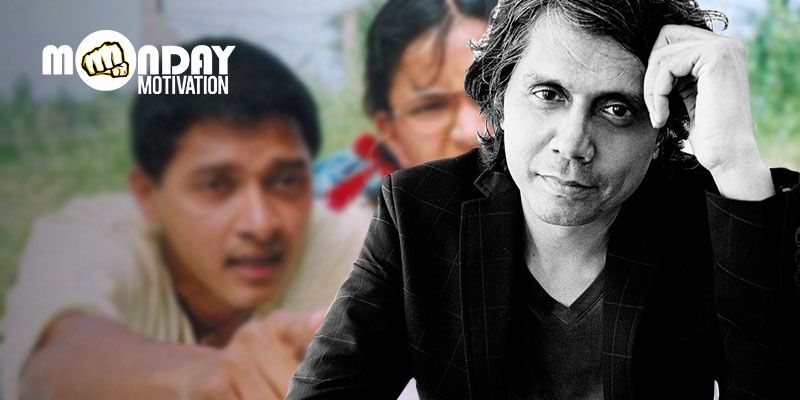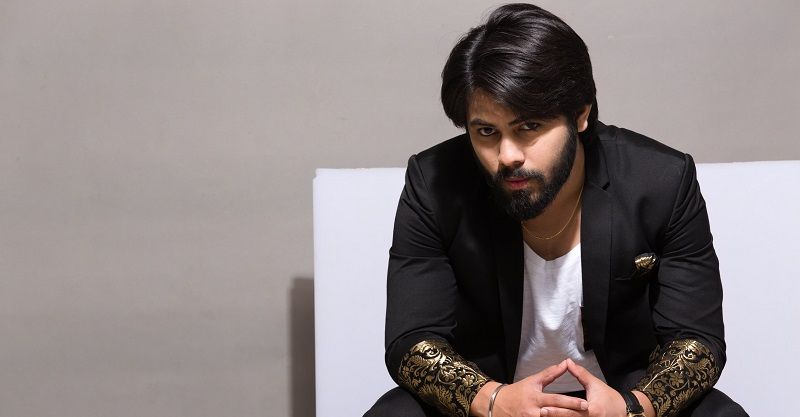Meet the director who is redefining disability in Bollywood
Be it Iqbal or Dhanak, Nagesh Kukunoor’s characters move away from stereotypical depictions; I tackle the disability by not tackling the disability, says the award-winning director

Combining the two “religions’ of India”, cricket and cinema, Nagesh Kukunoor taught us that dreams are achievable; that success sees only hard work and not someone’s disability.
“My approach to the movies is different. I tackle the disability by not tackling the disability, thereby, normalising it," Kukunoor says.
Most films that show disability in India have dealt with it with a tremendous amount of sympathy and pity. In my films, the main story is not about the disability, it’s something else, Nagesh says.
Chasing dreams, not limitations
Be it Iqbal or Dhanak, the 50-year-old director has a knack for sensitively handling the stories of the differently abled characters. Moving away from stereotypical characterisation, the main characters in his films are creators of their own future; their strength overshadows their physical limitations.

Explaining the creation and thought process behind his National Award-winning movies, Nagesh says his interaction with Able Disabled All People Together (ADAPT), a Mumbai-based organisation, helped him build his characters.
One thing that a person with disability will tell you, right off, is that they want to treated as normal; they don’t want you to constantly keep addressing their disability.
So, Iqbal was about a cricketer who wanted to achieve his dream; he just happened to have a disability. In Dhanak, the story revolved around two siblings embarking on great journey— 10-year-old Pari traveled across Rajasthan to get her brother Chhotu’s eyesight back— but the journey itself was magical and the plot moved beyond visual impairment.
Sensitising the audience
Nagesh’s journey as a film-maker spans over two decades. His first venture, Hyderabad Blues (1998), got him international recognition and also won him Audience Award for best film at Rhodes Island Film and Peachtree Village International Film Festival in Atlanta. However, he gained mass acceptance after the National Awarding-winning Iqbal.

He says films became a way for him to shed light on issues such as disability and inclusion.
Most of us continuously make a judgment on the person we are communicating with. And a lot of our biases come into play, automatically, when we meet a disabled or a differently abled person. I think that’s the boundary one needs to erase over time.
Nagesh realises that sweeping changes cannot take place by what is shown on screen. However, given the cult following cinema enjoys, the big screen can “surely” become a medium to sensitise people— if done correctly.
His Iqbal (2005) and Dhanak (2016) have been loved by children and adults alike. They have even been screened in schools across India. Kukunoor believes that this audience will begin the change in mindset, the “way we perceive and view disability”.

Students queue to watch the film Dhanak.
It is a very exciting thing for me to know that something that you have done is influencing younger minds. In Iqbal’s case, it has actually become a chapter in the Hindi textbook. That I think is huge in terms of creating awareness. I am happy with these two contributions to the much larger problem; or least alleviation to the problem and not adding to it, he adds.
Magical realism
While preparing for a film, one needs to understand the universe s/he is creating.

During Iqbal, Nagesh’s team spent an enormous amount of time at schools for the hearing impaired. They acquired the entire manual of sign language and had experts sign every line for every character. The actors were even given the movie script in the form of a DVD containing the translated version.
But Nagesh is aware of the limitations of his profession.
At the end of the day, movies are still fiction, they are not documentary films; you are kind of selling an exaggerated reality, if you will. But you try to understand the space— what you are depicting and in the process what do you achieve, he says.
Nagesh wasn’t unaware of the cult status superstars enjoy in India. The larger-than-life personas and the almost godly stature enjoyed by the three Khans, in the current generation, inspired him to drive home a larger message through Dhanak.
When you say that a 10-year-old girl from a small village ran away from home to meet Shah Rukh Khan, it doesn’t seem unreal to an Indian audience because we understand how big these stars are.

Through a poster of Shah Rukh Khan encouraging eye donations in Dhanak, Nagesh floats the message of hope and awareness.
Government intervention needed for wider reach
Despite making movies about people with disability, Nagesh knows that films often remains out of reach to the same community as the money involved in translating a movie becomes a key concern for the producer.
I as a creator can do only that much; it is for other institutions to take and run with our cinema. Dhanak was made audio-enabled for the visually impaired; it can now be screened in every blind school across India, he says.
Nagesh maintains that it is not the responsibility of the film industry alone to involve themselves and work for the cause of people with disability. The audience and the government also must step in for wider outreach.
You can have film festivals specifically for the disabled. These films are out there and I can guarantee that there will not be a single producer who will say that I will not give my movie for purposes such as these, he says.
Nagesh has, through his films, taught India to dream beyond physical limitations. With the recent legislature and increased government focus towards making India accessible for all, we are at a juncture where the dialogue around disability is shifting for good. Nagesh is leading the way to bring about a change in mindset, to make India an inclusive society in the real sense.








![[Startup Bharat] How Malabar Angel Network is boosting North Kerala’s startup ecosystem](https://images.yourstory.com/cs/2/79900dd0d91311e8a16045a90309d734/MANBuilding1574227798889jpg)


